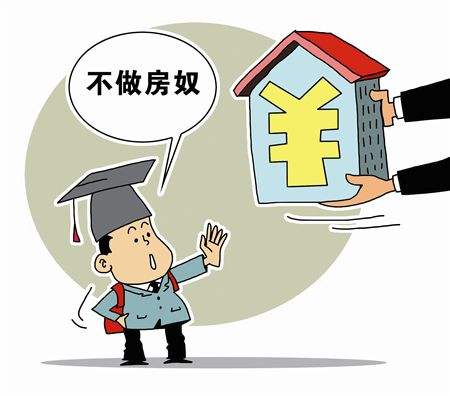相比80后 90后大学生不愿成'房奴'
发布日期:2018-01-16 :: 浏览数:1480 次 信息来源:
A recent report shows that college students born inthe 1990s are not as eager to buy houses as theirpredecessors, a sign that traditional notions ofhomeownership are weakening.
一份近日发布的报告显示,90后大学生对买房的热衷程度不如80后,这是传统的住房观念正在淡化的迹象。
Most college students born in the 1980s and 1990sagree that owning a home is essential to creating asolid foundation, but the proportion of those bornin the 90s is relatively lower, according to the bluepaper by the Chinese Academy of Social Sciences.
根据中国社会科学院发布的蓝皮书,大部分80后和90后大学生认同拥有住房对打造坚实基础来说非常重要,但持这一观点的90后大学生比例相对较低。
The survey asked participants if "buying a house" made them feel that they were truly "athome".
调查询问了受访者是否“有自己的房子才有家的感觉”。
It collected 10,765 samples from 12 universities in China, and found that 96.8% of those bornin the 80s "totally agree" or "agree". The number is 88.2% among those born after 1990, and85.4% for those born after 1995.
该调查共收集了12所中国高校的10765个样本,结果发现,96.8%的80后对此“非常同意”和“同意”,90后和95后中的这一比例分别为88.2%和85.4%。

More than 60% of college students born in the 80s would take on a heavy mortgage, whilemore than half of those born in the 90s say they would not.
超过六成的80后大学生愿意背负沉重的房贷,超过五成的90后大学生则称自己不愿这样做。
About 45% of those born after the 1990 say they would like to spend money on enjoying life.
约45%的90后称他们更愿意把钱花在享受生活上。
The change in attitude about buying houses is related to high property prices, the blue papersaid.
该蓝皮书称,买房观念的变化与高房价有关。
The paper also found that competition and living costs are higher in first-tier cities like Beijing, Shanghai and Guangzhou, but that graduates did not leave these cities for those reasons.
该蓝皮书还发现,北京、上海和广州等一线城市的竞争和生活成本更高,但是这些毕业生并没有因为这些原因而离开这些城市。




